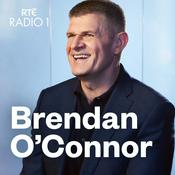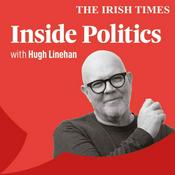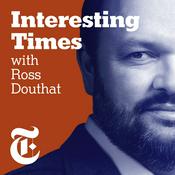69 episodes

Positive and negative tipping points
17/12/2025 | 29 mins.
In the final episode of the year, Anna speaks to Professor Tim Lenton (Chair in Climate Change and Earth System Science at the University of Exeter) about climate tipping points – the thresholds where a tiny change could lead to large and often irreversible transformations in the Earth system, with potentially disastrous consequences. Examples of such 'negative' tipping points include the dieback of the Amazon rainforest, the melting of the Greenland icesheet, and the collapse of the Atlantic Meridional Overturning Circulation (AMOC). But not all tipping points are bad. In the interview, Anna and Tim also discuss how the triggering of 'positive tipping points' within human societies could lead to rapid decarbonization. For further reading, please see: Tim Lenton's book 'Positive Tipping Points: How to Fix the Climate Crisis'. Tim Lenton's article 'Why some tipping points may be positive for the planet' in Chatham House's magazine 'The World Today'.

What happened at COP30?
26/11/2025 | 35 mins.
COP30 in Belém is over. What happened at the conference? What were the main outcomes? And what needs to happen next? To find out, Anna speaks to Jennifer Morgan (Senior Fellow at the Fletcher School of Law and Diplomacy at Tufts University; Fellow at the Hertie School of Governance; and former State Secretary and Special Envoy for International Climate Action at the German Federal Foreign Office) and David Waskow (Director for the International Climate Initiative at the World Resources Institute).

COP30: Key issues to watch
05/11/2025 | 55 mins.
COP30 is about to begin. Where do we stand ahead of the conference? What are the key issues to watch, and how might the complex geopolitical context influence the discussions in Belém? To find out, Anna is joined by three Chatham House colleagues: Ana Yang (Director of the Environment and Society Centre), Bernice Lee (Distinguished Fellow and Senior Advisor) and Nick Bridge (Associate Fellow at Chatham House and former UK Special Representative for Climate change). For additional analysis, please see: The expert comment 'What can COP30 achieve, following US withdrawal and underwhelming climate plans', available here. The explainer 'What is COP30 and why does it matter for the climate?, available here. The expert comment 'The UN climate process remains indispensable', available here.

What is Brazil's vision for the 'Action Agenda'?
29/10/2025 | 47 mins.
The incoming COP30 host, Brazil, has signalled it wants COP30 to mark the moment the UNFCCC transitions to a 'post-negotiation' phase, and that efforts should focus on action and implementation going forward. As part of its work to make this a reality, Brazil is reforming the UNFCCC's 'Action Agenda', a process bringing together cities, regions, businesses, investors, civil society and governments to implement the Paris Agreement. To find out more about Brazil's vision for the Action Agenda, co-hosts Anna and Bhargabi speak to Dan Ioschpe, Brazil's Climate High-Level Champion for COP30. In the introduction to the episode, Anna and her colleague Chris Aylett (Research Fellow at Chatham House) discuss the EU's commitment to phase out Russian energy imports by 2028 and US efforts to block a plan for decarbonizing international shipping.

How can the AIIB help deliver on the new climate finance goal?
16/10/2025 | 52 mins.
The multilateral development banks (MDBs) play a critical role in addressing climate change and have a key role to play in delivering on the 'New Collective Quantified Goal' on climate finance, agreed at COP29. This Climate Briefing episode focuses on the newest of the MDBs: the Asian Infrastructure Investment Bank (AIIB), launched in 2016. What are the similarities and differences between the AIIB and the other MDBs? What is the AIIB doing to address climate change? To find out, Anna and Bhargabi speak to Kim-See Lim (Chief Investment Officer, Public Sector (Region 1) & Financial Institutions and Funds (Global) Clients at the AIIB) and Hans Peter Lankes (Managing Director and Deputy Chief Executive at the Overseas Development Institute; Visiting Professor in Practice at the LSE Grantham Research Institute; and a Senior Fellow at the LSE/Oxford International Growth Centre). In the introduction to the episode, Anna and Bhargabi speak about growth trends in global renewable energy generation, climate politics in the UK, the US-China trade spat and the ratification of the High Seas Treaty.
More News podcasts
Trending News podcasts
About The Climate Briefing
Listen to The Climate Briefing, The Rest Is Politics: US and many other podcasts from around the world with the radio.net app

Get the free radio.net app
- Stations and podcasts to bookmark
- Stream via Wi-Fi or Bluetooth
- Supports Carplay & Android Auto
- Many other app features
Get the free radio.net app
- Stations and podcasts to bookmark
- Stream via Wi-Fi or Bluetooth
- Supports Carplay & Android Auto
- Many other app features


The Climate Briefing
download the app,
start listening.






























